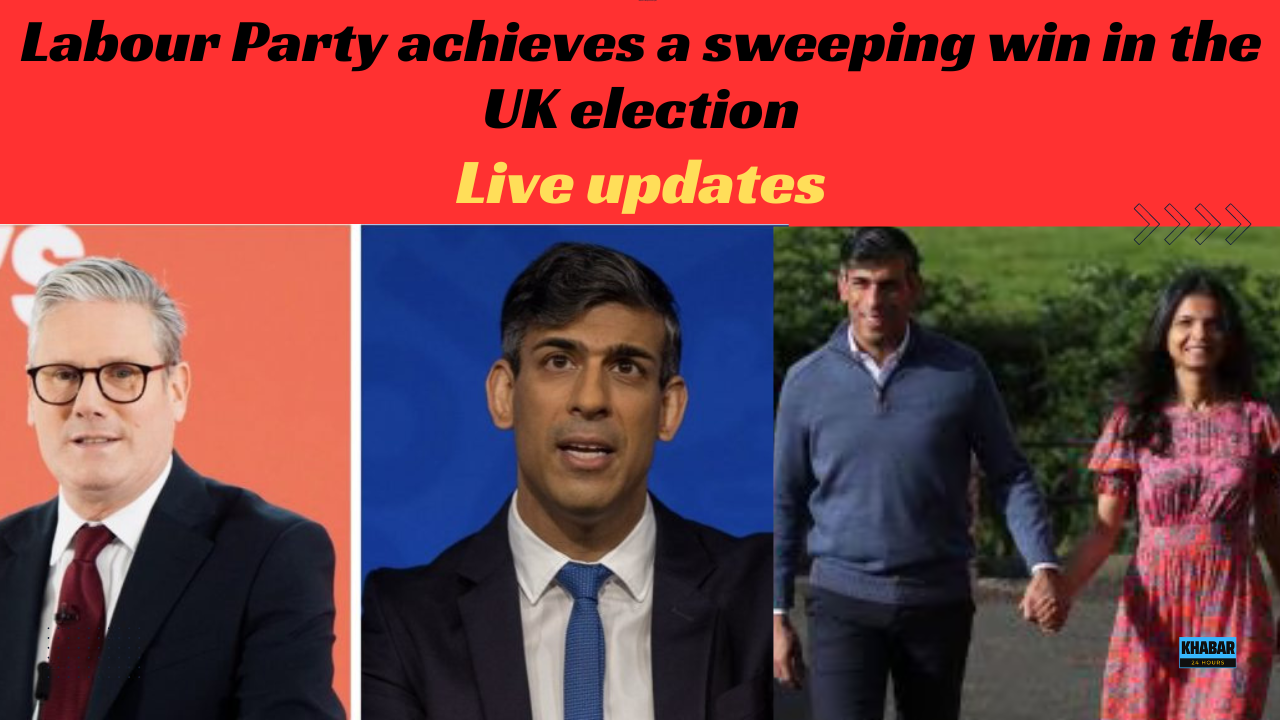This is CNBC’s live blog covering the results of the UK’s parliamentary election. Scroll down for real-time updates.
LONDON — The UK’s opposition Labour Party is set to win a massive parliamentary majority in the general election, ousting the incumbent Conservatives after 14 years.
Early on Friday morning, Labour reached the threshold needed to govern alone as outgoing PM Rishi Sunak conceded defeat. Keir Starmer, leader of the center-left Labour, will become the next prime minister and declared victory in the early hours.
“We did it,” he told his Labour colleagues. “You campaigned for it, you fought for it — and now it has arrived … change begins now.”
Projections indicate that Labour may achieve its second-largest majority since former Prime Minister Tony Blair’s 179-seat victory in 1997.
On Thursday, millions of people across England, Scotland, Wales, and Northern Ireland voted for their local representatives in the 650-member House of Commons, the UK’s lower house of parliament. Ballots are still being counted, with constituencies announcing their winning candidates as soon as the votes are tallied.
Here are the seats that have been declared so far:
UK general election 2024 result
After 592 of 650 seats declared

Alongside a significant surge in votes for Labour and substantial losses for the Conservatives, another major theme of the night has been the apparent gains by Reform UK.
The party is projected to win 13 seats and has significantly increased its vote share in the early declared constituencies.
Born out of the Brexit Party, which was founded by Nigel Farage and advocated for a “no-deal Brexit” between 2016 and 2021, the populist, right-wing Reform UK takes a hardline stance on immigration. After the Brexit process concluded, it campaigned on issues such as opposition to Covid lockdowns.
The Brexit Party did not secure any seats in the 2019 general election.
Nigel Farage, who has served in the European Union parliament on a pro-Brexit platform but has repeatedly failed to win a seat in the UK legislature, stepped down as party leader in March 2021. Although he initially stated he would not run for MP in 2024 to focus on supporting Donald Trump’s US presidential campaign, he reversed his decision in June, announcing he would both stand as a candidate and resume his role as Reform UK leader. Numerous analysts suggested that the return of the well-known figure would boost the party at the expense of the Conservatives.
David Bull, co-deputy leader of Reform UK, told the BBC during overnight vote counting that pollsters had underestimated the party’s support, similar to the underestimation of Brexit support.
“I think what you’re seeing is actually the shy Reformers coming out in droves. We saw this with Brexit, didn’t we, the shy Brexiteers, so the pollsters were caught off guard, and once again they’ve been caught off guard,” Bull said. “If that is true and we win 13 seats, that is extraordinary.”
A “shy” voter refers to someone who does not reveal in polls which way they will eventually vote.
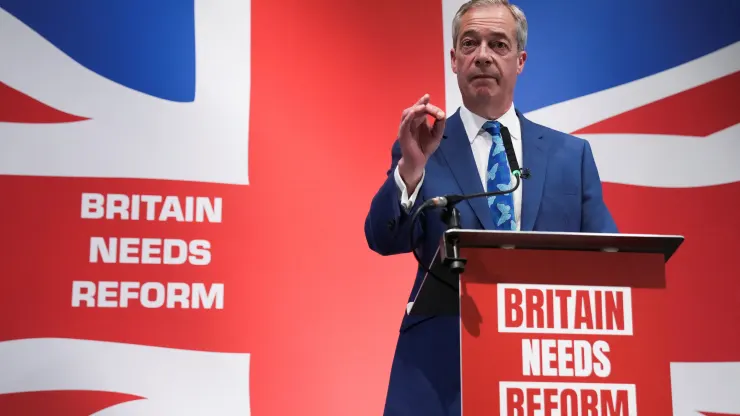
How accurate are exit polls?
Exit polls have a strong track record of accuracy in Britain. According to Investec, they have correctly predicted the largest party (Conservatives) in the last four elections, with a mean absolute error of just 11 seats for the overall majority.
“Exit polls ask voters how they actually voted, in contrast to polls published during the campaign, which model voting intentions,” wrote Philip Shaw, Investec U.K. chief economist, late Thursday. “One can expect the actual outcome to be reasonably close to the [exit poll] figures. However, with tactical voting perhaps more widespread than in previous elections, one should not be too confident about this.”
Rob Wood, chief U.K. economist at Pantheon Macroeconomics, also cautioned that in 1974, exit polls overestimated Labour’s seats by 61. In more recent history, the largest exit poll error occurred in 2019 when Conservative seats were underestimated by 15, Wood added.
Timetable
After the initial results are announced before midnight London time, Investec anticipates a “particularly busy period of declarations between 03:00 and 04:00 a.m.”
“A full set of results is expected by 07:00 tomorrow morning, although this may be delayed by recounts in various constituencies,” wrote Philip Shaw. “Another complication could arise if postal votes, sent out late in certain areas, lead to challenges by candidates who lost by a narrow margin.”
He added that currency markets have barely reacted, given the widely expected forecasted result. “What will matter more to markets, ultimately, is what a Labour government chooses to do if and when it takes office.”
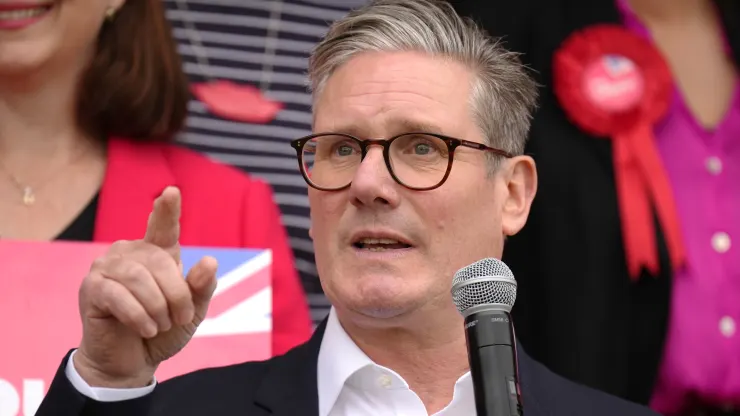
Keir Starmer is poised to become the UK’s new prime minister, with exit polls suggesting his left-of-center party could secure a majority of around 170 seats.
He will succeed Rishi Sunak, who was elected by Conservative Party members between general elections in 2022.
Starmer, 61, has risen rapidly in politics since entering the UK parliament less than a decade ago. Despite this, many Brits still know little about the man who has positioned himself as the candidate for change.
Born in 1962 in London, England, Starmer’s father worked as a toolmaker and his mother as a nurse. A barrister (trial lawyer), he served as a human rights adviser during former Labour Prime Minister Tony Blair’s landmark Northern Ireland Good Friday Agreement, and in 2008 became the head of the UK’s Crown Prosecution Service.
Starmer was knighted in 2014 for his services to criminal justice and was elected to Parliament the following year, serving as shadow immigration minister and Brexit minister for the opposition.
ALSO READ : Protests in Kenya continue despite the bill to increase taxes being partially withdrawn.
First seat of the election called for Labour
The first seat of the 2024 general election has been declared for Labour in the constituency of Houghton and Sunderland South.
Bridget Phillipson, Labour’s education chief, was announced as the first member of the UK’s new parliament. She remarked that if the exit polls were accurate, “then after 14 years, the British people have chosen change.”
Labour retained the Houghton and Sunderland South seat, but the candidate for Nigel Farage’s Reform UK party made significant gains compared to its 2019 result (when it was the Brexit Party), surpassing the Conservatives to take second place.
Several constituencies in northern England compete to be the first to declare in a general election.
In the 2017 and 2019 elections, Newcastle achieved this distinction with announcements within less than 90 minutes of polls closing. Between 1992 and 2015, Sunderland was the first to declare its seat.
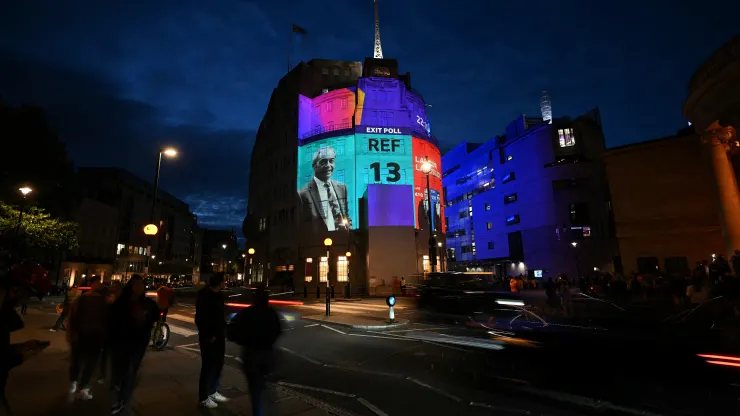
The projected scale of Conservative losses in the election is attributed to gains by smaller parties as well as Labour’s strong challenge, according to polling expert John Curtice speaking to the BBC.
Curtice explained that the seat forecast reflects a significant shift in the national vote share against the Conservatives. “Support for the Conservatives is declining more sharply in constituencies they are defending than in those already held by Labour,” he said.
“The Conservative Party’s setbacks tonight are largely due to Reform, even though it is Labour that stands to benefit,” he added, referring to Nigel Farage’s populist right-wing party, Reform UK.
Curtice also noted that while there hasn’t been a substantial increase in overall support for the Liberal Democrats, the party is performing better in constituencies where it is challenging the Conservatives. He cautioned, however, that the polling patterns may not perfectly reflect the final outcome. “While it appears to be an election where Labour could win by a landslide, it doesn’t necessarily mean Labour will secure a landslide in terms of total votes,” he concluded in his remarks to the BBC.
Scotland’s SNP is expected to secure only 10 seats in the British parliament, according to exit polls, a significant decline from their 48 seats in 2019.
This follows a period of turmoil for the pro-Scottish independence party. Former leader Humza Yousaf resigned in April after a brief tenure as Scotland’s first minister, succeeding long-time leader Nicola Sturgeon, who unexpectedly resigned in February 2023 amidst a police investigation into party finances. Additionally, Sturgeon’s husband, Peter Murrell, faced charges of embezzlement earlier this year.
John Swinney assumed leadership of the party earlier this year.

The outcome of the 2024 UK general election is still in the realm of projections but is already being widely characterized as historic.
This is largely due to the significant electoral swing towards the Labour Party. To secure even a narrow majority, Labour needed a larger increase in parliamentary seats than Tony Blair achieved in 1997. Their projected 170-seat majority suggests an unprecedented surge.
According to exit polls, Labour is expected to secure 410 seats, up from 202 in the 2019 general election. However, despite these gains, Labour may have garnered a smaller share of the total vote compared to 2017 under Jeremy Corbyn’s leadership, when they narrowly prevented a Conservative majority but fell short of winning themselves.
In contrast, exit polls indicate that the ruling Conservative Party is projected to win just 131 seats, a significant decrease from their 365-seat total in the previous election and their lowest post-war count.
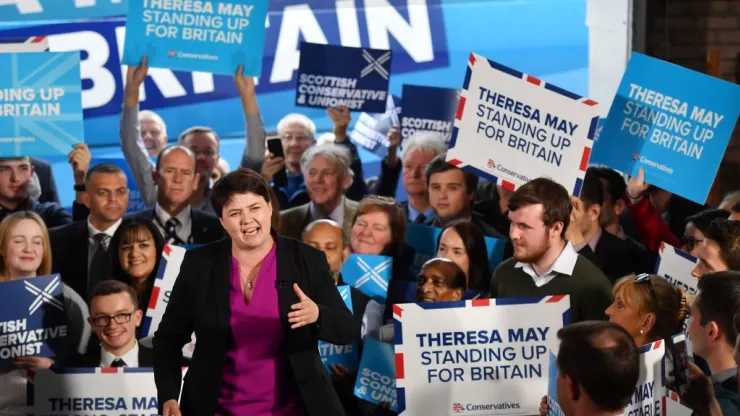
Former Scottish Conservatives leader Ruth Davidson described the result as a “massacre” for her party during an interview with Sky News. However, she also noted that according to exit polls, the outcome wasn’t as dire as some had feared in the days leading up to the vote.
ALSO READ : “Transform Your Success: Netflix Co-Founder Marc Randolph’s Powerful Rule – ‘No Meetings After 5 PM’”
“There’s no sugarcoating it, this has been… it’s a massacre — it is a massacre,” she remarked.
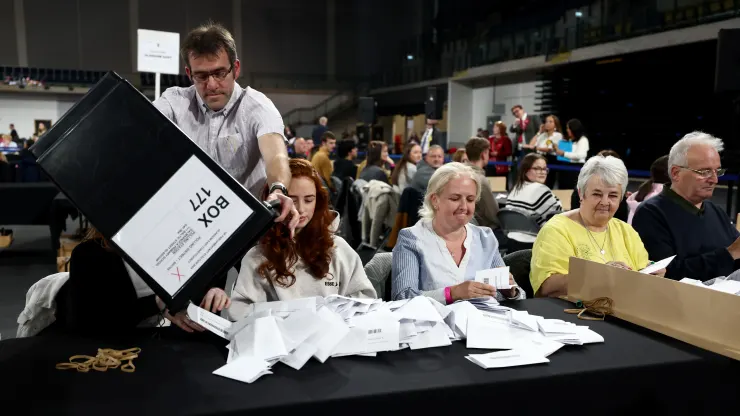
The manual counting of millions of ballots has commenced across the UK’s 650 constituencies, with the first results expected imminently and announcements continuing through the night into Friday morning.
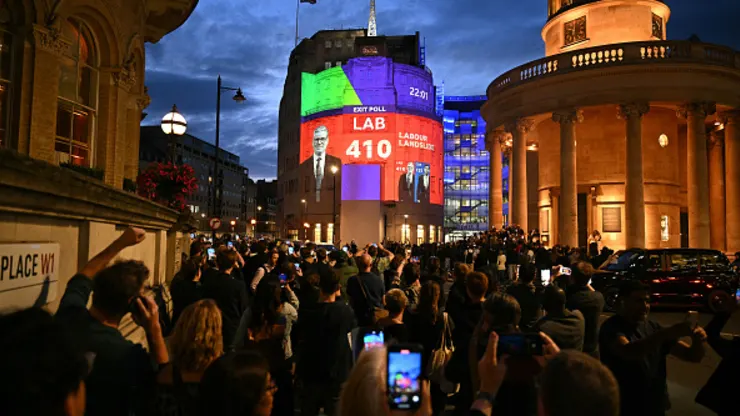
The incumbent Conservative Party in the UK was expected to lose power in Thursday’s election, and initial exit polls revealed the magnitude of the swing.
According to a poll conducted by Ipsos UK for Sky News, the BBC, and ITV News, the projected distribution of the 650 seats in the House of Commons is as follows:
- Labour: 410
- Conservatives: 131
- Liberal Democrats: 61
- Reform: 13
- Scottish National Party (SNP): 10
- Plaid Cymru: 4
- Green Party: 2
- Other parties: 19
In the 2019 election, the Conservatives won 365 seats compared to Labour’s 202. The Liberal Democrats secured 11 seats, while Scotland’s SNP captured 48.
As voting concluded in the election, exit polls indicate a landslide victory for Labour, signaling a significant defeat for the incumbent Conservatives.
According to an Ipsos UK poll for Sky News, the BBC, and ITV News, Labour is projected to secure 410 seats out of 650, while the Conservatives are expected to hold 131 seats. Smaller parties are also poised for substantial gains, with the Liberal Democrats projected to win 61 seats and Nigel Farage’s Reform UK forecasted to secure 13 seats.
Labour has secured the first seat of the 2024 general election in the constituency of Houghton and Sunderland South.
Bridget Phillipson, Labour’s education chief, was announced as the initial member of the UK’s new parliament. She remarked that if the exit polls prove accurate, “then after 14 years, the British people have opted for change.”
While Labour retained the Houghton and Sunderland South seat, the candidate from Nigel Farage’s Reform UK party showed a significant improvement from its 2019 performance (when it was known as the Brexit Party), surpassing the Conservatives to claim second place.
Several constituencies in northern England are competing to be the first to declare results in this general election.
In previous votes in 2017 and 2019, Newcastle held the distinction with results announced within 90 minutes of polls closing. Prior to that, Sunderland was traditionally the first to declare its seat between 1992 and 2015.

While pollsters predict an overall victory for Labour, many seats, including those held by British Prime Minister Rishi Sunak and Finance Minister Jeremy Hunt, are still too close to call.
Approximately 120 out of 650 seats are expected to have a margin of victory less than 5 percentage points, according to a projection model by the Financial Times.
Prominent figures will be hoping to avoid what is colloquially referred to in British politics as a “Portillo moment.” This term stems from the surprise defeat of former Conservative politician Michael Portillo in the 1997 general election by his relatively unknown Labour opponent, Stephen Twigg. Portillo, a high-profile figure who had served as defense minister and was seen as a potential future party leader, lost his seat in a shock result that symbolized Labour’s sweeping victory under Tony Blair over incumbent Prime Minister John Major.
In the last general election in 2019, under former Conservative leader Boris Johnson, the party secured a majority of 365 seats compared to Labour’s 202 seats.
The turnout for that election was 67.3%.
When parliament was dissolved on May 30 this year to start the July 4 election campaign, various political events had shifted the balance to 344 Conservative lawmakers and 205 for Labour.
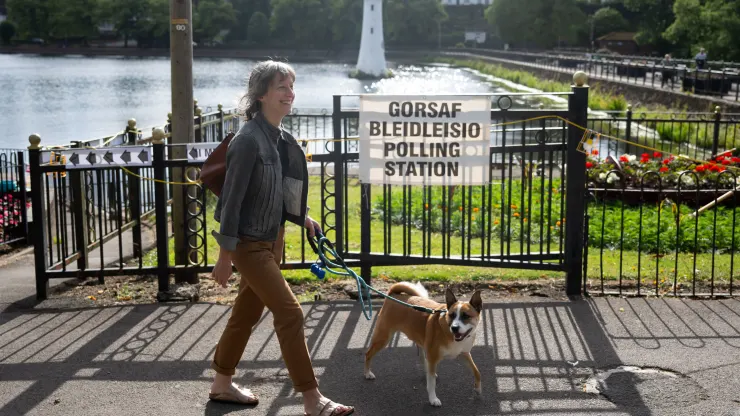
On Thursday, millions of British citizens in England, Wales, Scotland, and Northern Ireland cast their votes for their local representatives in the House of Commons, the lower chamber of the UK’s parliament.
In typical British fashion, the weather was changeable and unusually cool during the nation’s first July general election since 1945.
The UK elects 650 Members of Parliament (MPs). According to longstanding convention, the prime minister is an MP chosen by the monarch who can “command the confidence” of the Commons — effectively, this is the leader of the party holding the majority of seats.
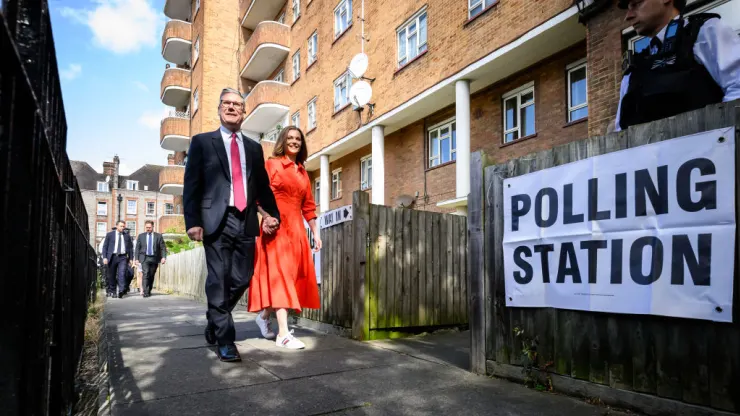
Prospective MPs run for election in one of the UK’s 650 constituencies. Using the “first past the post” system, voters can select only one candidate from their local list, and the candidate with the highest number of votes in each constituency wins a seat in parliament.
Unlike other voting systems, there are no second rounds or ranking of candidates based on first and second choices. This makes it challenging for smaller parties to convert a higher share of the popular vote into parliamentary seats.

Around 40,000 polling stations were open from 7 a.m. to 10 p.m. on Thursday, and it is anticipated that either Labour or the Conservatives, the two main parties, will likely acknowledge victory to the other sometime on Friday morning.

